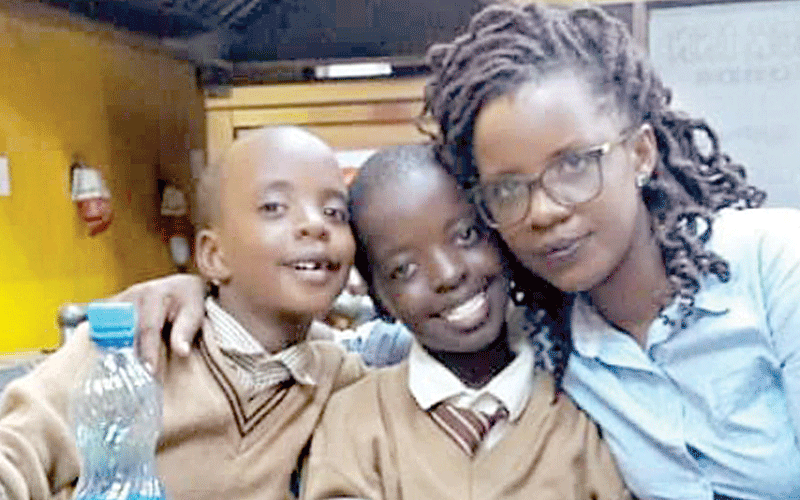Readying your family for coronavirus lockdown

Jasmine Atieno @sparkleMine
After the spread of novel coronavirus was declared a pandemic by the World Health Organisation (WHO), the country had to take drastic actions, incuding declaring public spaces de facto no-go zones; bars, churches and non-essential workplaces and schools have been closed to prevent the spread of the deadly virus.
The rapid spread of the virus means more of us have chosen or are forced to minimise time outside of home to either quarantine or prevent social contact.
As the Centres for Disease Control and Prevention (CDC) explains, families should channel concern into preparation, especially for potential mandatory coronavirus lockdown.
The centre has called on households to create a plan to help empower families to feel a little less stressed by taking positive steps that will ease their minds.
Stocking up
Caroline Nyawira, a mother of two and business woman in Bamburi, Mombasa county, shares that the news of coronavirus pandemic has been of a major shake for her and her family.
She came up with a ‘stay at home’ checklist to get her and her family prepared for staying indoors until the wave passes.
“I have stocked up on essentials to last me and my two boys at least two months,” she says.
In her pantry, Nyawira has piled up 20 kilogrammes of rice, 10 litres cooking oil, two cartons of longlife milk, several rolls of tissue paper, bundles of maize and wheat flour, 10 kilogrammes washing powder, five litres disinfectant, five litres tomato sauce, two boxes tomato paste, five kilogrammes, 10 kilogrammes sugar, two kilogrammes of salt, enough soap and shower gels, beans and green grams among other items.
In total, she has spent about Sh30,000 in house shopping, noting that this has caused a financial strain. 
“I had already paid full year school fees for my children who are in boarding school, so having them unexpectedly come back home for an unknown period of time is financially draining,” she says but adding that her children’s well-being comes first.
Most importantly, however, she is concerned about how she can help her children manage their fears, while also remaining aware and alert themselves.
“I have talked to the boys and explained to them about what is happening and what is expected of them while social distancing.
This includes washing their hands regularly, wiping locks and entire house with disinfectant, toilets, basins and household surfaces using disinfectant,” she says.
At a personal level, she has had to cut down the number of visitors coming to her house, tries to stay away from crowded places, avoids shaking hands among other measures.
“From the information I have gathered, hygiene is key, and I intend to try my level best.”
She understands that having children at home for this period also means having to find creative ways of keeping the children busy.
“I am engaging them with house chores such as doing their laundry, washing the utensils as well as teaching them how to cook,” she offers.
The children are also keeping up with educational TV programmes as well as making use of materials provided by their school to ensure they keep up with their lessons and academic needs.
Sabrina Habib, co-founder and chief exploration officer of Kidogo, a network of childcare centres in Nairobi’s informal settlements says as the nation shuts down and loved ones huddle at home to weather what may well be weeks of coronavirus-induced isolation, family tensions are rising. 
“We are concerned about the health and safety of children who are being kept at home all day long.
We have been using Facebook as a means to communicate ideas on how to keep young children engaged in play and how parents can talk to their children about coronavirus.
Parents need guidance on how to keep their children happy, healthy and joyful during these difficult times,” she says.
Cross Head
In order to cope, Sabrina notes that children need structure and routine such as naptime, meal time, play time.
“Play is, especially important to deal with stressful situations. Keep young children engaged through songs, games and play materials.
Things like bottle tops, tissue rolls, paper scraps and other recycled materials are great for sorting, counting and stacking,” she says.
Engaging them in simple household chores and saying things like, ‘How many spoons do we have?’ or ‘Let’s name the colours of all of these ingredients!’ keeps them occupied, develops their language and creates an opportunity to bond with their parent.
If they are not experiencing any sickness symptoms, Sabrina says it’s still fine to go outdoors as long as they practice proper social distancing as it important to allow their children to get a few minutes every day of fresh air and movement.
On talking to them about the virus, Sabrina notes that children, even as young as two years old, will likely have heard about it from TV, radio or other adults talking.
“Ask them how they feel about it. Some children express their feelings better through creativity.
Invite them to draw what they’re feeling, or use a puppet, and use that as a conversation starter.
Be sure to remind them that we’re all doing our best to keep them safe,” she explains.
Children deal with stress in different ways. Some are more clingy,others withdraw, some get agitated and throw tantrums.
She urges parents to respond to these reactions in a supportive way. Remember that children will need extra love and attention during this time.
More importantly, help children feel empowered with what they can do to keep healthy by letting them wash their hands properly, not touching their face and sneezing or coughing into their sleeve.
“Children rely on their parents to provide a sense of safety and security. They take their cues from us.
Manage your own anxiety and provide them with a loving, playful environment,” she says in conclusion.







